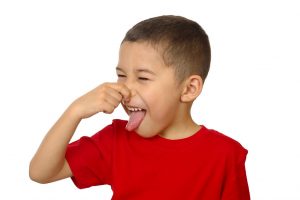 Summers in the real estate business used to be unpleasant, sometimes because houses were dirty. Houses also collect and hold odor in the heat of the summer (and in the dead of the winter).
Summers in the real estate business used to be unpleasant, sometimes because houses were dirty. Houses also collect and hold odor in the heat of the summer (and in the dead of the winter).
Most summers, in the cities and college towns, rental property was shown while the tenants were still there, in hopes of selling before the end of the lease. This led to lots of smelly showings.
Covid-19 has solved that problem for buyer’s agents, this year. Fewer occupied houses are being shown.
Removing smells is good for you and your house
This year, most of us anticipate more time at home this summer. How can we keep our houses smell-free, and possibly more germ-free? Here are the easiest things to keep up on this summer:
Ventilate:
Refresh the air in the house at least once a week. Open as many windows as possible and blow fresh air in. This is especially important for houses that are air conditioned and first floor rooms, where you can’t leave the windows all the way open.
The holders of smells:
- Fabric. That’s laundry. Oh.My,God! I cannot tell you how often I showed houses in the summer that smelled like sweat socks. Don’t let laundry linger in the summer. At least once in the summer, pay attention to couches, curtains, floor mats, dog and cat beds, too.
- Damp/wet areas.
- Check behind the faucets, under the sinks, under the dish drainer. Mold and mildew like little puddles.
- Basements with closed windows and no dehumidifier are a problem; either open the windows or use a dehumidifier – not both.
- The concrete floor of an unfinished basement is porous; some moisture transfers through it from the wet soil under your house.
- In finished basements, wood and cloth are porous and hold the dampness and invite the mold and mildew.
- Food waste. Garbage pails need to be hosed out, not just emptied, in the summer.
- Body waste. Cat boxes and any other pet place where their waste collects need to be cleaned with disinfectant and water. Then there’s your toilets; you can simply put some disinfectant in the water when you go to sleep and let it do the job overnight.
Indoor air pollution
We have things in our house that emit gases. Not just our gas stove, but our bookshelves (made of pressboard), paint, perfumes, and other manufactured items.
These chemicals collect in poorly ventilated spaces. Some people are sensitive to them, and get allergy symptoms like headache and fatigue. With all the time we are spending at home, during the Covid-19 crisis, members of your household may be affected by them.
Ventilation helps. So does air filtration. Both of those actions will contribute to control of transmission of Covid-19 among the people in your household.

Leave A Comment